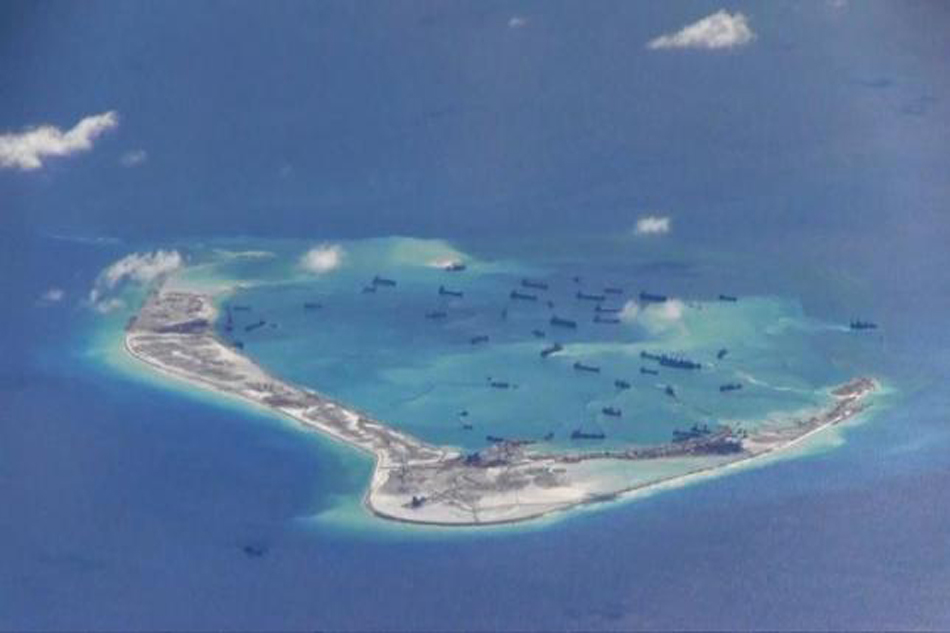Hague court to issue PH-China ruling on July 12 | ABS-CBN
ADVERTISEMENT

Welcome, Kapamilya! We use cookies to improve your browsing experience. Continuing to use this site means you agree to our use of cookies. Tell me more!
Hague court to issue PH-China ruling on July 12
Hague court to issue PH-China ruling on July 12
ABS-CBN News
Published Jun 29, 2016 11:47 PM PHT
|
Updated Jun 30, 2016 12:45 AM PHT
MANILA - The Permanent Court of Arbitration in The Hague said Wednesday that it will issue the ruling on the arbitration initiated by the Philippines against China on July 12.
MANILA - The Permanent Court of Arbitration in The Hague said Wednesday that it will issue the ruling on the arbitration initiated by the Philippines against China on July 12.
The arbitration case involves the two countries' maritime dispute in the West Philippine Sea.
The arbitration case involves the two countries' maritime dispute in the West Philippine Sea.
According to the tribunal, the ruling will first be issued to the parties via e-mail. The ruling will be accompanied by a press release containing a summary of the award. The press release will be in English and French, with an unofficial Chinese translation provided.
According to the tribunal, the ruling will first be issued to the parties via e-mail. The ruling will be accompanied by a press release containing a summary of the award. The press release will be in English and French, with an unofficial Chinese translation provided.
Countries that were granted observer status in the arbitration will also receive a copy of the ruling and press release via e-mail. A copy of the ruling will also be available on the tribunal's website.
Countries that were granted observer status in the arbitration will also receive a copy of the ruling and press release via e-mail. A copy of the ruling will also be available on the tribunal's website.
ADVERTISEMENT
The arbitration court clarified that there will be no in-person meeting or ceremony in the release of the ruling.
The arbitration court clarified that there will be no in-person meeting or ceremony in the release of the ruling.
The Philippines filed for arbitration in January 2013 to settle maritime disputes in the South China Sea. The tribunal for the arbitration was constituted in June 2013 and was composed of Judge Thomas A. Mensah of Ghana, Judge Jean-Pierre Cot of France, Judge Stanislaw Pawlak of Poland, Professor Alfred H.A. Soons of the Netherlands and Judge Rüdiger Wolfrum of Germany. Mensah served as president of the tribunal.
The Philippines filed for arbitration in January 2013 to settle maritime disputes in the South China Sea. The tribunal for the arbitration was constituted in June 2013 and was composed of Judge Thomas A. Mensah of Ghana, Judge Jean-Pierre Cot of France, Judge Stanislaw Pawlak of Poland, Professor Alfred H.A. Soons of the Netherlands and Judge Rüdiger Wolfrum of Germany. Mensah served as president of the tribunal.
In its final ruling, the tribunal will address issues of jurisdiction reserved for further consideration in its earlier ruling on jurisdiction and admissibility and will address the merits of those of the Philippines' claims that fall within its jurisdiction.
In its final ruling, the tribunal will address issues of jurisdiction reserved for further consideration in its earlier ruling on jurisdiction and admissibility and will address the merits of those of the Philippines' claims that fall within its jurisdiction.
A deputy commissioner in China's Foreign Ministry earlier said Beijing will reject the ruling to be rendered by the arbitration court.
A deputy commissioner in China's Foreign Ministry earlier said Beijing will reject the ruling to be rendered by the arbitration court.
Song Ruan, deputy commissioner for China's Foreign Ministry in Hong Kong, told a previous foreign press briefing that the islands in dispute do not fall within the Philippines' territory and China will not accept the ruling.
Song Ruan, deputy commissioner for China's Foreign Ministry in Hong Kong, told a previous foreign press briefing that the islands in dispute do not fall within the Philippines' territory and China will not accept the ruling.
"The arbitration unilaterally initiated by the Philippines is illegal," Song said. "The South China Sea islands and Huangyang Island (Scarborough Shoal) mentioned in the arbitration case simply do not fall into the Philippines' territory defined by the three treaties," he said.
"The arbitration unilaterally initiated by the Philippines is illegal," Song said. "The South China Sea islands and Huangyang Island (Scarborough Shoal) mentioned in the arbitration case simply do not fall into the Philippines' territory defined by the three treaties," he said.
ADVERTISEMENT
ADVERTISEMENT




